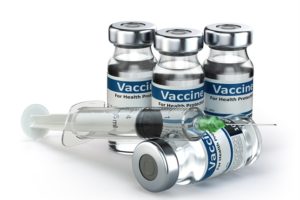 Vaccines
Vaccines
Why are animals vaccinated? How do animal vaccines help protect people?
What is a vaccine?
A vaccine is made up of all or part of a disease-causing bacteria or virus, and causes the body to produce its own defence system to fight infection. When a vaccine is given to a person or an animal, the body’s immune system makes defence cells and antibodies specific for whatever disease the vaccine is protecting against. The defence cells and antibodies are then “stored” for future use to protect against illness when exposure to hat disease occurs.
Why are animals vaccinated?
For the same reasons, humans are! Vaccines keep animals healthy, protect animal welfare, prevent disease and reduce the need for antibiotics. Vaccinating animals also prevents the spread of certain diseases from humans to animals.
See Our PDF to Learn More: DownloadPrint
SnapAg:
What are GMOs and are they okay to eat? What does organic farming look like? How are animals like chickens or cattle raised?
snapAG is a series of resources that invite students to explore the hot topics affecting the agriculture industry today. Topics range from organics, biotechnology, GMOs, livestock, and more.
Explore what’s trending in agriculture in Canada by browsing the topics here.
Sources available at: https://aitc-canada.ca/en-ca/learn-about-agriculture
snapAg is brought to you by Agriculture in the Classroom Canada and partners.



